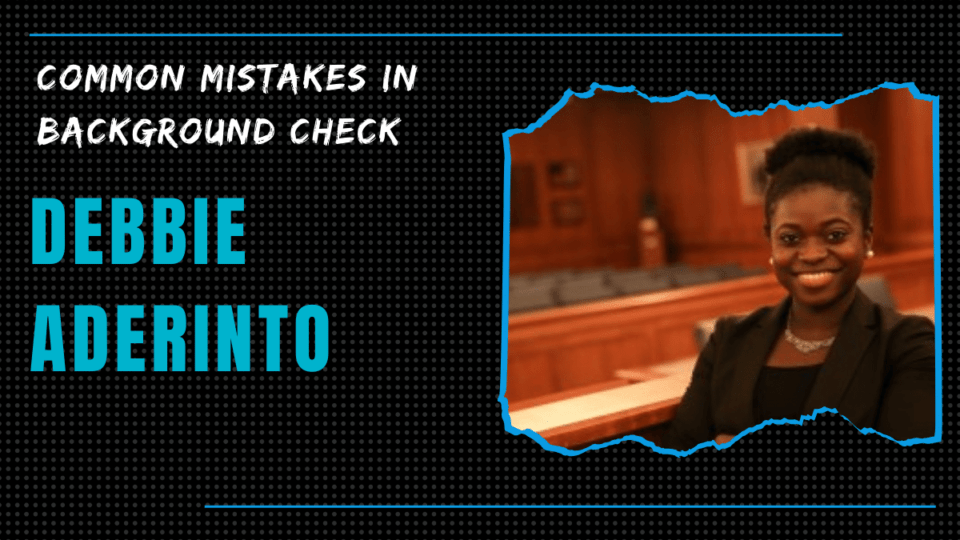Background checks have become a critical aspect of the hiring process for many employers, providing valuable insights into a candidate’s history and character. However, the use of background checks must be carefully balanced with anti-discrimination laws to ensure fair and equitable treatment of all applicants.
In this article, we will delve into the intersection of background checks and anti-discrimination laws, examining the implications of the Fair Credit Reporting Act (FCRA), the guidelines set forth by the Equal Employment Opportunity Commission (EEOC), and practical strategies for compliance, with insights from Labor & Employment attorney Adebola Aderinto.
Understanding the Fair Credit Reporting Act (FCRA)
The Fair Credit Reporting Act (FCRA) is a federal law that regulates the collection, dissemination, and use of consumer information, including background checks conducted by employers. Enacted in 1970, the FCRA aims to promote the accuracy, fairness, and privacy of information in consumer reports.
Under the FCRA, employers must adhere to specific requirements when obtaining and using consumer reports for employment purposes. These requirements include:
Consent Requirement
Employers must obtain written consent from job applicants before conducting a background check. This consent must be clear, conspicuous, and separate from other application materials.
Disclosure Obligation
Employers are required to provide applicants with a copy of their rights under the FCRA before obtaining a consumer report. This disclosure must be made in writing and inform applicants of their rights, including the right to dispute inaccurate information.
Adverse Action Procedures
If an employer intends to take adverse action based on information obtained from a consumer report, such as denying employment or promotion, the employer must provide the applicant with a pre-adverse action notice. This notice must include a copy of the consumer report and a summary of the applicant’s rights under the FCRA.
Opportunity to Dispute
After receiving the pre-adverse action notice, applicants must be given a reasonable opportunity to dispute the accuracy or completeness of the information contained in the consumer report.

The Role of the Equal Employment Opportunity Commission (EEOC)
The Equal Employment Opportunity Commission (EEOC) is responsible for enforcing federal laws that prohibit employment discrimination based on race, color, religion, sex, national origin, age, disability, or genetic information. In the context of background checks, the EEOC has issued guidelines to ensure that employers conduct fair and nondiscriminatory screenings.
Disparate Impact Analysis
The EEOC emphasizes the importance of conducting a disparate impact analysis to assess whether an employer’s background check policies disproportionately exclude certain protected groups from employment opportunities. Even if an employer’s policies appear neutral on their face, they may still have a discriminatory impact if they disproportionately affect protected classes.
Individualized Assessment
The EEOC encourages employers to conduct individualized assessments when considering an applicant’s criminal history. This involves considering the nature and gravity of the offense, the time elapsed since the offense, and the nature of the job in question. Blanket policies that automatically disqualify applicants with criminal records may run against anti-discrimination laws.
Avoiding Overly Broad Inquiries
Employers should refrain from asking about arrest records or convictions that have been expunged or sealed, as these inquiries may unfairly disadvantage applicants who have rehabilitated themselves.
Practical Tips for Compliance
Ensuring compliance with relevant laws and avoiding legal pitfalls requires careful attention to detail and proactive measures. Here are some practical tips for employers:
Develop Clear Policies and Procedures
Employers should develop clear policies and procedures for conducting background checks, ensuring that all employees involved in the hiring process understand their obligations under the law. Regular training sessions help reinforce compliance efforts.
Utilize Qualified Screening Agencies
Employers should work with reputable screening agencies that comply with FCRA requirements and adhere to best practices in background screening. Thoroughly vetting screening agencies can help mitigate the risk of inaccurate or incomplete information.
Individualized Review Process
Implementing an individualized review process for applicants with criminal records can help mitigate the risk of disparate impact claims. This involves considering each applicant’s circumstances on a case-by-case basis and documenting the rationale for any adverse employment decisions.
Regular Compliance Audits
Employers should conduct regular compliance audits to ensure that their background check policies and procedures remain up-to-date and compliant with evolving legal standards. This proactive approach can help identify and address potential issues before they escalate into legal liabilities.
Seek Legal Guidance
Given the complexity of employment law and background check regulations, employers should consult with experienced labor and employment attorneys like Adebola Aderinto to ensure compliance with relevant laws and regulations. Legal guidance can help navigate nuanced legal issues and minimize the risk of litigation.
Conclusion
Balancing the use of background checks with anti-discrimination laws is essential for promoting fairness and equity in the hiring process.
By understanding the requirements of the Fair Credit Reporting Act (FCRA), following the guidelines set forth by the Equal Employment Opportunity Commission (EEOC), and implementing practical compliance strategies, employers can minimize legal risks and foster a diverse and inclusive workplace.
With the expertise of attorneys like Adebola Aderinto, employers can navigate the complex legal landscape surrounding background checks with confidence and integrity.


